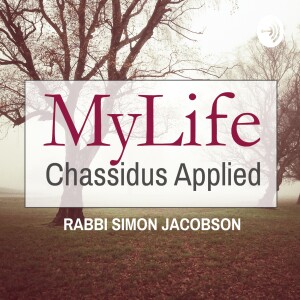
- Podcast Features
-
Monetization
-
Ads Marketplace
Join Ads Marketplace to earn through podcast sponsorships.
-
PodAds
Manage your ads with dynamic ad insertion capability.
-
Apple Podcasts Subscriptions Integration
Monetize with Apple Podcasts Subscriptions via Podbean.
-
Live Streaming
Earn rewards and recurring income from Fan Club membership.
-
Ads Marketplace
- Podbean App
-
Help and Support
-
Help Center
Get the answers and support you need.
-
Podbean Academy
Resources and guides to launch, grow, and monetize podcast.
-
Podbean Blog
Stay updated with the latest podcasting tips and trends.
-
What’s New
Check out our newest and recently released features!
-
Podcasting Smarter
Podcast interviews, best practices, and helpful tips.
-
Help Center
-
Popular Topics
-
How to Start a Podcast
The step-by-step guide to start your own podcast.
-
How to Start a Live Podcast
Create the best live podcast and engage your audience.
-
How to Monetize a Podcast
Tips on making the decision to monetize your podcast.
-
How to Promote Your Podcast
The best ways to get more eyes and ears on your podcast.
-
Podcast Advertising 101
Everything you need to know about podcast advertising.
-
Mobile Podcast Recording Guide
The ultimate guide to recording a podcast on your phone.
-
How to Use Group Recording
Steps to set up and use group recording in the Podbean app.
-
How to Start a Podcast
-
Podcasting
- Podcast Features
-
Monetization
-
Ads Marketplace
Join Ads Marketplace to earn through podcast sponsorships.
-
PodAds
Manage your ads with dynamic ad insertion capability.
-
Apple Podcasts Subscriptions Integration
Monetize with Apple Podcasts Subscriptions via Podbean.
-
Live Streaming
Earn rewards and recurring income from Fan Club membership.
-
Ads Marketplace
- Podbean App
- Advertisers
- Enterprise
- Pricing
-
Resources
-
Help and Support
-
Help Center
Get the answers and support you need.
-
Podbean Academy
Resources and guides to launch, grow, and monetize podcast.
-
Podbean Blog
Stay updated with the latest podcasting tips and trends.
-
What’s New
Check out our newest and recently released features!
-
Podcasting Smarter
Podcast interviews, best practices, and helpful tips.
-
Help Center
-
Popular Topics
-
How to Start a Podcast
The step-by-step guide to start your own podcast.
-
How to Start a Live Podcast
Create the best live podcast and engage your audience.
-
How to Monetize a Podcast
Tips on making the decision to monetize your podcast.
-
How to Promote Your Podcast
The best ways to get more eyes and ears on your podcast.
-
Podcast Advertising 101
Everything you need to know about podcast advertising.
-
Mobile Podcast Recording Guide
The ultimate guide to recording a podcast on your phone.
-
How to Use Group Recording
Steps to set up and use group recording in the Podbean app.
-
How to Start a Podcast
-
Help and Support
- Discover

Ep. 482: What More Can We Do to Help Win the War?
Rabbi Jacobson will discuss the following topics:
What more can we do to help win the war that continues to rage on?
- Why have all our beautiful, good deeds not ended the war?
- After all that we have done, can we demand that G-d finally put an end to this nightmare?
- What is the meaning of the song ech ti zimlak that the Rebbe instructed him to sing on various occasions?
- What does this day offer us?
- What lessons can we learn from the Rebbetzin about how to win the war against Hamas and their antisemitic supporters?
- Why do people refer to the Rebbetzin as the Frierdiker Rebbe’s daughter or the Rebbe’s wife instead of describing her in her own right?
- What did the Rebbe mean when he said marrying the Rebbetzin bound him to the chassidim:
- Wasn't the Rebbe already bound to the chassidim by being a descendant of the Tzemach Tzedek?
- Did the Rebbe explain the significance of her passing in connection with the number eleven – on the 22nd day (twice 11) in the 11th month?
- Is there a connection between the Basi L’gani maamar and the 15th and 22nd of Shevat?
- What do we learn from the central theme of this parsha?
- Why were only 10 of the 613 commandments said at Sinai?
- If the 10 commandments frightened the Jews even when they heard it directly from G-d, how can we expect to embrace Torah and mitzvos on an ongoing basis?
- Did the Jews accept the Torah with joy?
- How does G-d observe the mitzvah of honoring parents?
- Will civil war break out among Hamas as it did among the Egyptians?
- Why did they lie to Phraoah about leaving Egypt for several day when they never intended to return? Can we learn anything from this in our war with Hamas?
- How does the manna manifest today in our livers?
- Why don’t we say the parsha of manna every day?
With the passing of Cantor Tzvi Tzazkes, what can you share about his connection with the Rebbe? What lessons can we
More Episodes
Create your
podcast in
minutes
- Full-featured podcast site
- Unlimited storage and bandwidth
- Comprehensive podcast stats
- Distribute to Apple Podcasts, Spotify, and more
- Make money with your podcast
It is Free
- Privacy Policy
- Cookie Policy
- Terms of Use
- Consent Preferences
- Copyright © 2015-2025 Podbean.com




